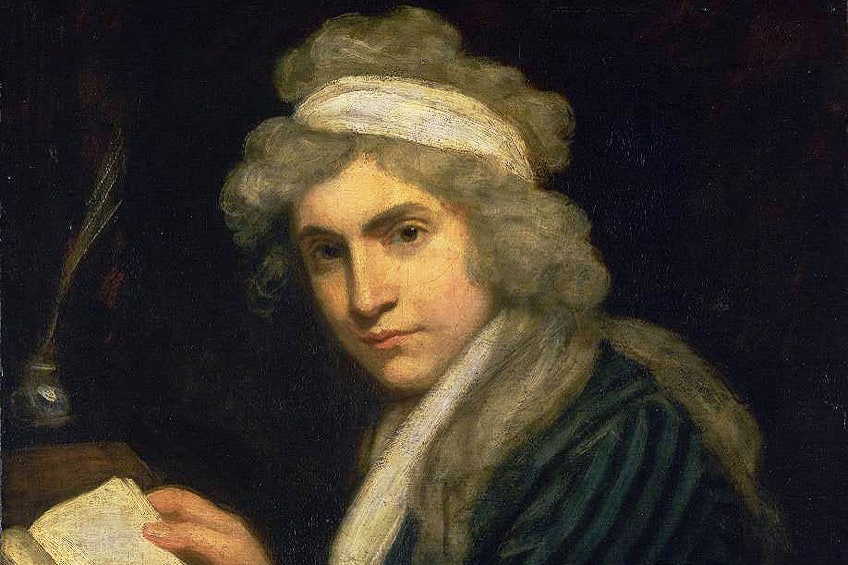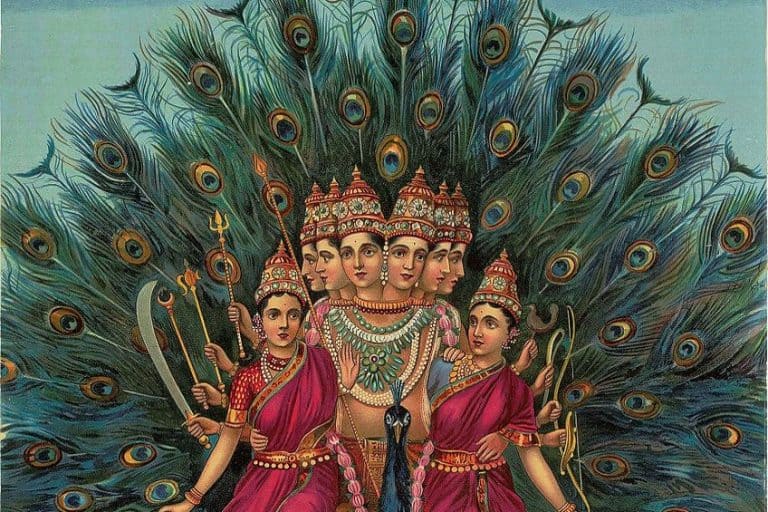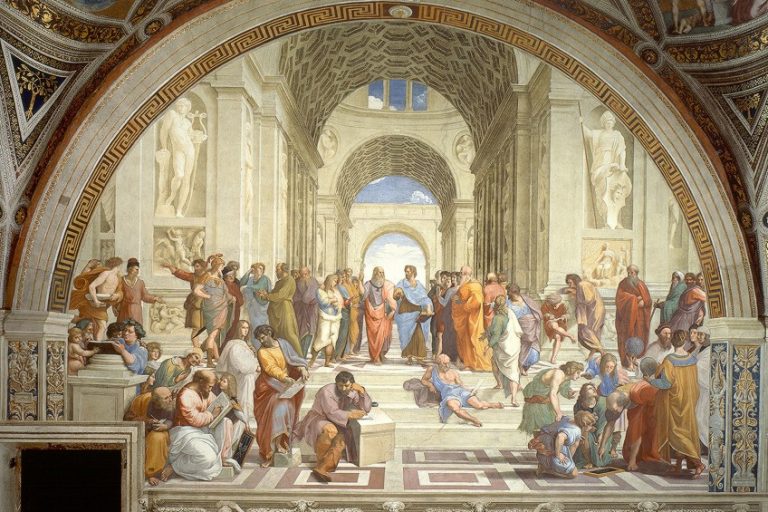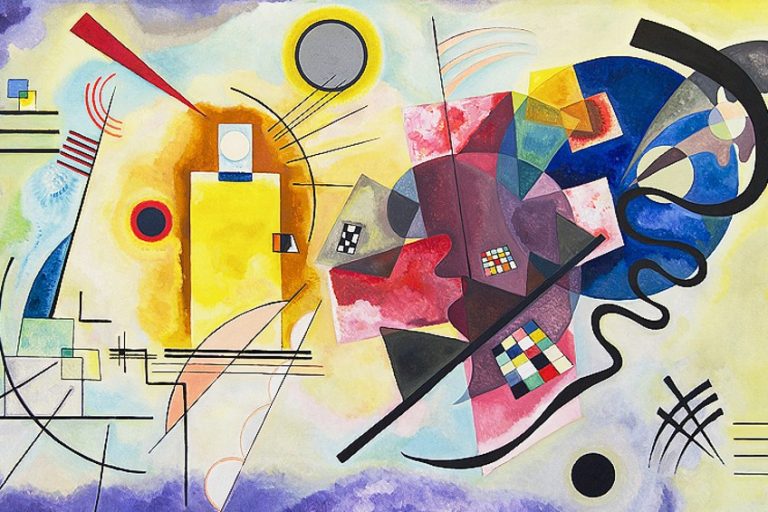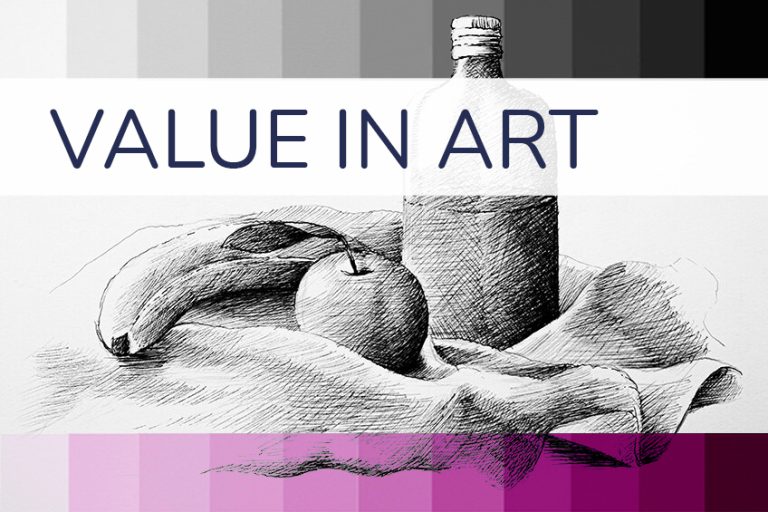Famous Philosophers – History’s Greatest Thinkers
What’s a philosopher and which are considered the most famous philosophers through the ages? Today we will be discovering the philosophers’ names that have left their mark on the school of philosophy. We shall be exploring the important philosophers from antiquity as well as modern philosophers. The ancient Greek philosophers were essential in building the groundwork for the world today, looking for significance in everyday life and forming their reflections into a framework of philosophical concepts.
Table of Contents
- 1 Exploring Important Philosophers Through the Ages
- 1.1 Confucius (551 – 479 BCE)
- 1.2 Socrates (469 – 399 BCE)
- 1.3 Plato (428–348 BCE)
- 1.4 Aristotle (384 – 322 BCE)
- 1.5 Dante Alighieri (1265 – 1321)
- 1.6 Niccolo Machiavelli (1469 – 1527)
- 1.7 Thomas Hobbes (1588 – 1679)
- 1.8 René Descartes (1596 – 1650)
- 1.9 Blaise Pascal (1623 – 1662)
- 1.10 John Locke (1632 – 1704)
- 1.11 Gottfried Leibniz (1646 – 1716)
- 1.12 Voltaire (1694 – 1778)
- 1.13 David Hume (1711 – 1776)
- 1.14 Jean-Jacques Rousseau (1712 – 1778)
- 1.15 Immanuel Kant (1724 – 1804)
- 1.16 Mary Wollstonecraft (1759 – 1797)
- 1.17 Auguste Comte (1798 – 1857)
- 1.18 Ayn Rand (1905 – 1982)
- 1.19 Simone de Beauvoir (1908 – 1986)
- 1.20 Michael Foucault (1926 – 1984)
- 2 Frequently Asked Questions
Exploring Important Philosophers Through the Ages
The intellectual, impersonal, and systematic analysis of reality is what philosophy is all about. From ancient Greece to the present day, philosophy has played an important role in the development of civilizations.
Famous philosophers, both ancient and modern, have developed innovative ideas and produced advances in a wide range of businesses and fields.
These fields include politics, arithmetic, literature, arts, and science, over the years. Some of the most important philosophers, their systems of thought, and what we may learn from their foresight are included below.
Confucius (551 – 479 BCE)
| Nationality | Chinese |
| Date of Birth | c. 551 BCE |
| Date of Death | c. 479 BCE |
| Place of Birth | Zou, State of Lu |
Confucius saw himself as a broadcaster of ideals from past eras that he felt had been forgotten in his own. Confucianism, his philosophical principles, stressed individual and political morality, social connection accuracy, fairness, compassion, and sincerity. Under the Hundred Schools of Thought period, his disciples contended with many other systems, only to be repressed in support of the Legalists throughout the Qin empire.
Confucius’ ideas were officially sanctioned by the incoming government after Qin’s downfall and Han’s triumph over the Chu.
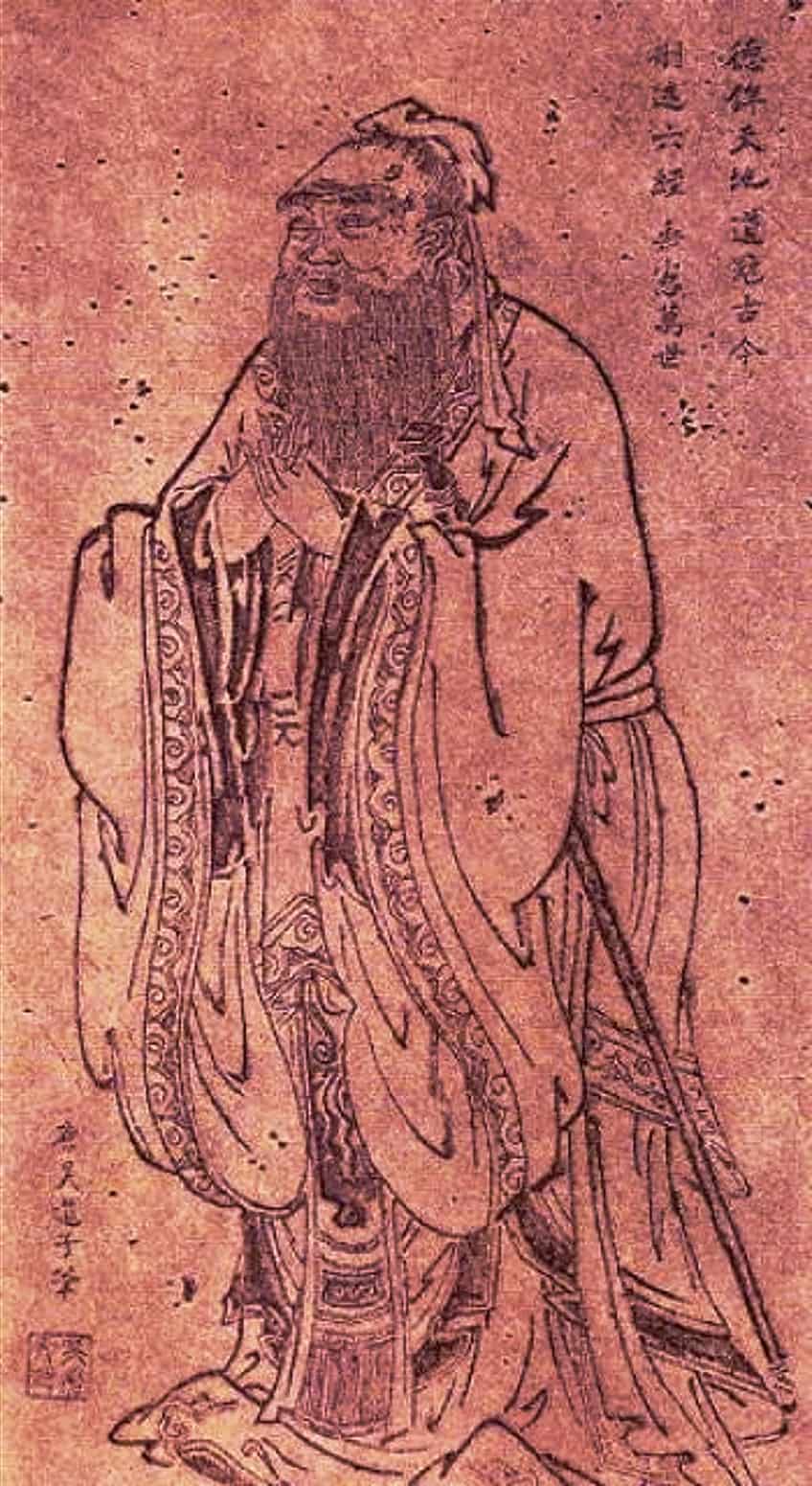
Confucianism established a doctrine recognized in the West as Neo-Confucianism. Many of the Chinese classic literature, including all of the Five Classics, is generally attributed to Confucius, although current academics are wary of attributing particular pronouncements to Confucius himself. Aphorisms about his teachings were gathered in the Analects only after his death, several years later. Confucius’ teachings are based on Chinese faith and traditions.
He promoted stable family loyalty, ancestor reverence, and reverence for seniors by children and spouses by wives, suggesting family as the foundation for perfect governance.
Socrates (469 – 399 BCE)
| Nationality | Greek |
| Date of Birth | c. 469 BCE |
| Date of Death | c. 399 BCE |
| Place of Birth | Athens, Greece |
Socrates is one of history’s most famous personalities for his contribution to the creation of ancient Greek philosophy, which served as the basis for all Western philosophy. He was an artist who appears to have had a variety of other vocations, including military man before the Oracle of Delphi declared him the smartest man on earth. In an attempt to disprove the oracle, he went on a new career of interrogating others who were considered to be knowledgeable, proving the oracle true.
He was regarded as the smartest man on earth because he did not profess to know anything important.
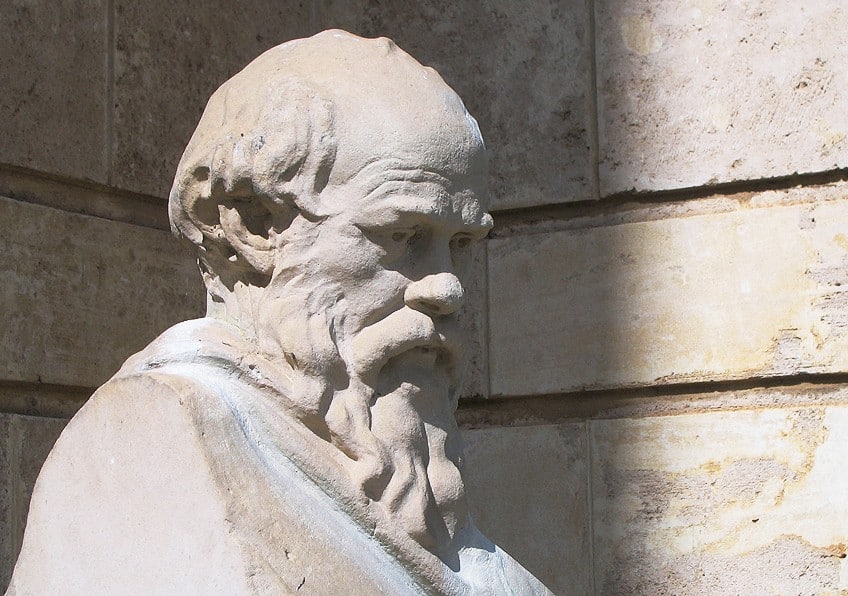
Socrates’ factuality has never been called into question, but what he advocated is as mysterious as Pythagoras’ philosophical beliefs or Christ’s later doctrines in that none of these men recorded anything themselves.
Although Socrates is often considered the founder of thought in the West, much of what we know about him comes from Plato.
Plato (428–348 BCE)
| Nationality | Greek |
| Date of Birth | c. 428 BCE |
| Date of Death | c. 348 BCE |
| Place of Birth | Athens, Greece |
His family was affluent and politically influential, and it appears Plato was groomed for a political career. His inclinations, on the other hand, were toward the arts, and in his adolescence, he penned plays and maybe poems.
Plato abandoned his literary endeavors and dedicated himself to Socrates, even during his trial and conviction, and created the basic philosophic writings of the ancient world that influenced world civilization.
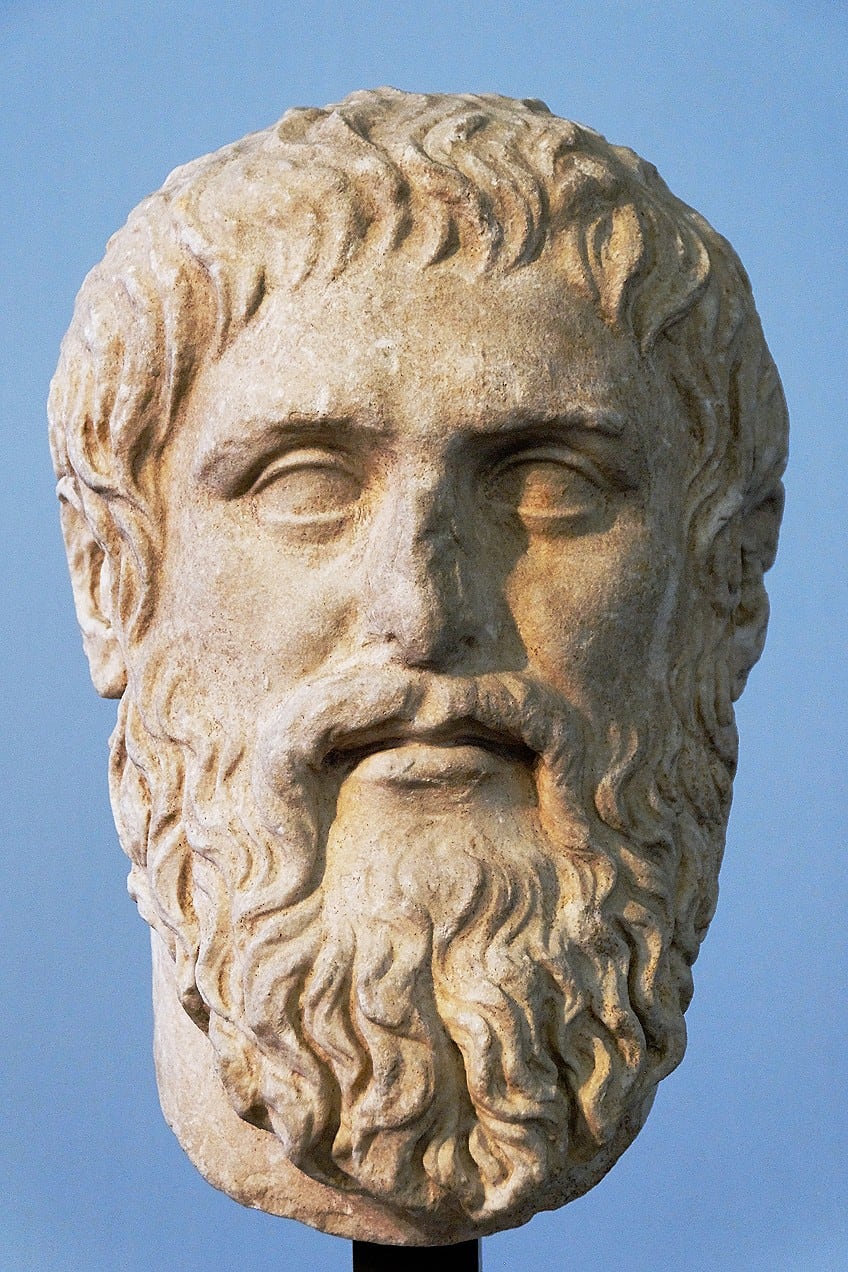
The planet’s three major Abrahamic faiths owe much to Platonic ideas, whether straight or via his pupil and companion Aristotle, whose doctrines remained constant with Plato’s perception of the significance of compassion for one’s soul and preserving a righteous style of life, even though Aristotle would drift away from a few of Plato’s ideas.
Plato’s ideas are universally concerned with the search for Truth and the comprehension of what is Good.
Plato said that there was one fundamental truth that every human being should acknowledge and aspire to live by. He argued that the domain of Forms embodied this fact. Plato’s Theory of Forms asserts, simply expressed, that there is a higher realm of reality than our sense-perceived world and that our sense-perceived world is but a mirror of it.
Aristotle (384 – 322 BCE)
| Nationality | Greek |
| Date of Birth | c. 384 BCE |
| Date of Death | c. 322 BCE |
| Place of Birth | Stagira, Greece |
From reasoning to physiology to morality and aesthetics, Aristotle made major and enduring contributions to practically every facet of human understanding. Though his work was eclipsed in ancient times by that of his master Plato, Aristotle’s surviving texts had enormous influence from classical antiquity to the Enlightenment. His main research field was “being qua being,” which looked at what can be stated about being based on what it is rather than any specific traits it may possess. Aristotle also considers cause, shape, substance, and a logical justification for God’s existence.
After joining Plato’s Academy at the age of 17, Aristotle learned from him. He later became a mentor to Alexander the Great.
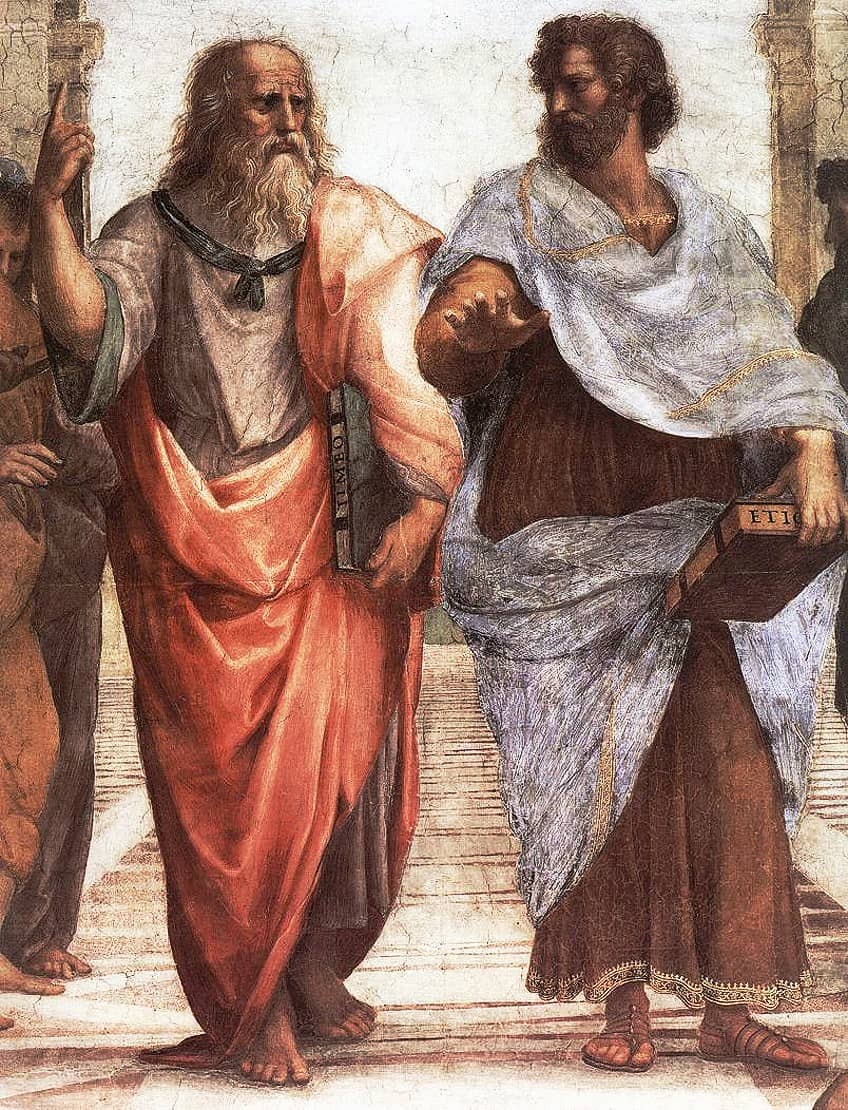
Aristotle was interested in the posteriori methods of knowing, which were promoted by Immanuel Kant and include drawing conclusions based on real observation and evidence. Aristotle’s intellectual understanding embraced every known field of the sciences and arts, leading him to adore the Aristotelian syllogistic, which holds that rational argument uses the deductive approach to come to conclusions based on two or more premises considered to be true.
Dante Alighieri (1265 – 1321)
| Nationality | Italian |
| Date of Birth | 1265 |
| Date of Death | 1321 |
| Place of Birth | Florence, Italy |
Italian poet, literary poet, literature theorist, ethical philosopher, and social figure Dante Alighieri is best known for The Divine Comedy, an epic poem. The Divine Comedy is a deep Christian perspective of humankind’s temporal and ultimate fate. It is a milestone in Italian writing and among the finest achievements of all medieval European literature. It is based on Dante’s own experiences of banishment from Florence on the most human level. It may be viewed as a parable, taking the shape of a voyage through hell, purgatory, and heaven at its most thorough degree.
The poem astonishes its readers with its breadth of knowledge, its in-depth and complete study of current issues, and its originality of imagery and language.
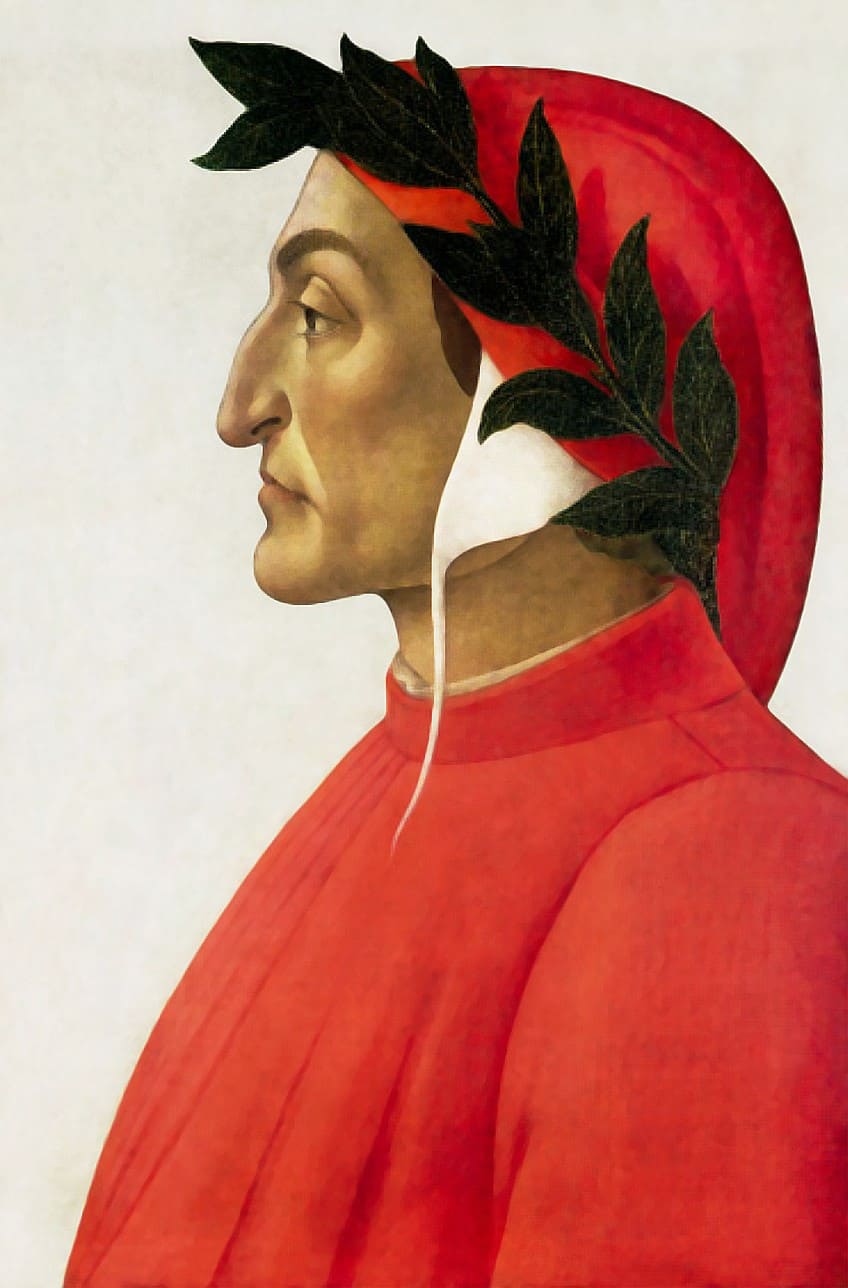
Dante greatly altered the trajectory of literary evolution by writing his poetry in the vernacular of Italy during his time instead of Latin. His vibrant vocabulary included a wide range of languages and dialects, with a focus on the Tuscan vernacular, which would become conventional in literary Italian.
He not only gave voice to his nation’s growing lay culture, but Italian also became the written language of Western Europe for the next several centuries.
Niccolo Machiavelli (1469 – 1527)
| Nationality | Italian |
| Date of Birth | 3 May 1469 |
| Date of Death | 21 June 1527 |
| Place of Birth | Florence, Italy |
Niccolo Machiavelli was a trailblazer in political morality and a notable character in Italian Renaissance philosophy. He was also a diplomat, politician, political theorist, historian, dramatist, and humanist writer. The famed Italian philosopher was a fervent believer in consequentialism, and his thoughts are encapsulated in the phrase “the goals justify the means.”
Hobbes, Montesquieu, Spinoza, Hume, Locke, Rousseau, and Francis Bacon were among the great thinkers who were influenced by his works.

The Il Principe, a contentious political treatise regarded as one of the oldest notable works of contemporary political theory, is most usually linked with Machiavelli’s name. This brief work was poorly welcomed by Italian audiences in the 16th century, and it was heavily attacked and subsequently forbidden by the Catholic Church, who eventually damned him as the Devil’s student.
Thomas Hobbes (1588 – 1679)
| Nationality | English |
| Date of Birth | 5 April 1588 |
| Date of Death | 4 December 1679 |
| Place of Birth | Westport, England |
Thomas Hobbes was an English philosopher well known for his political theories. His philosophy is often regarded as the most comprehensive materialist of the 17th century. His worldview was unique, and it is still employed in current politics. His major focus was the issue of political and social order, and how people might coexist peacefully without fear of civil war.
Thomas Hobbes was interested in broadening his philosophical understanding, which piqued his interest in key philosophical debates.
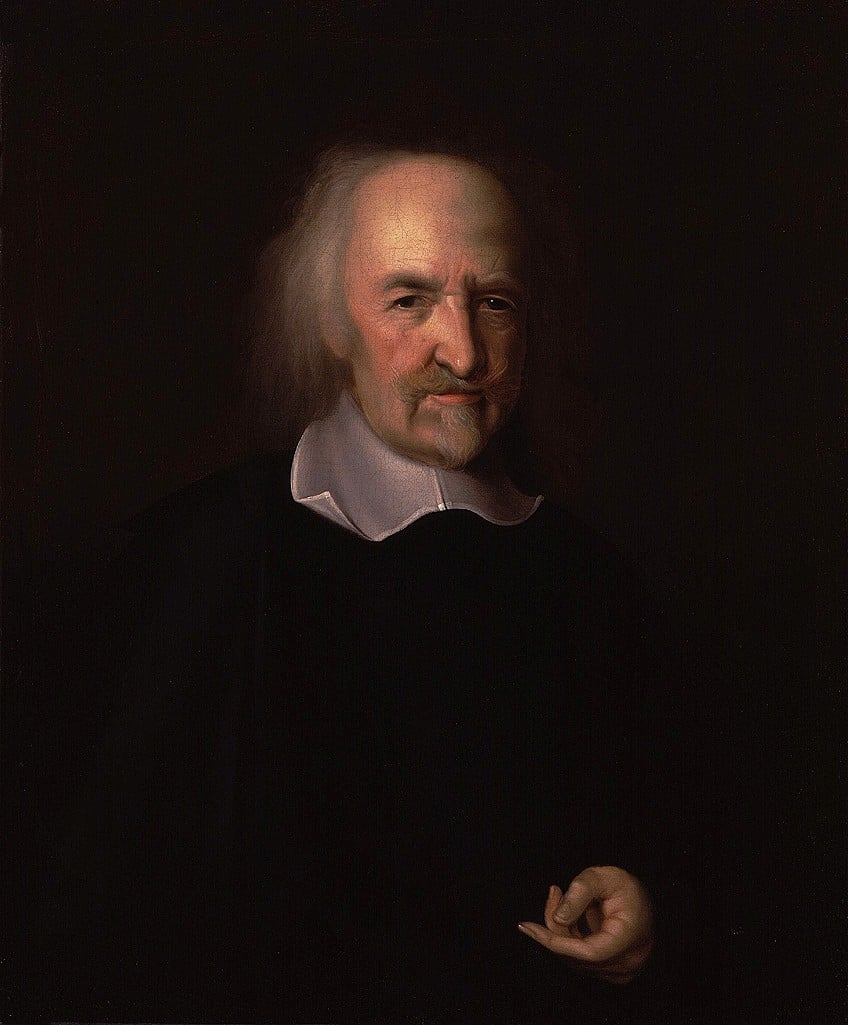
After a visit to Florence in 1636, he became a regular debater in Marin Mersenne France’s philosophic clubs. He began to think of himself as a philosopher and scholar around 1637. His book Leviathan, about social structure and government, has made him famous.
It is regarded as among the most prominent instances of the concept of the social contract.
René Descartes (1596 – 1650)
| Nationality | French |
| Date of Birth | 31 March 1596 |
| Date of Death | 11 February 1650 |
| Place of Birth | La Haye en Touraine, France |
Like other famous philosophers, Descartes felt that reasoning was the key to comprehending the natural environment and sciences. Descartes created a school of thought known as Cartesianism, which is based on the idea that the ability to reason should be at the center of any serious endeavor to reach a correct conclusion or realization.
The notion of Cartesianism holds that the universe is divided into three domains of existence.
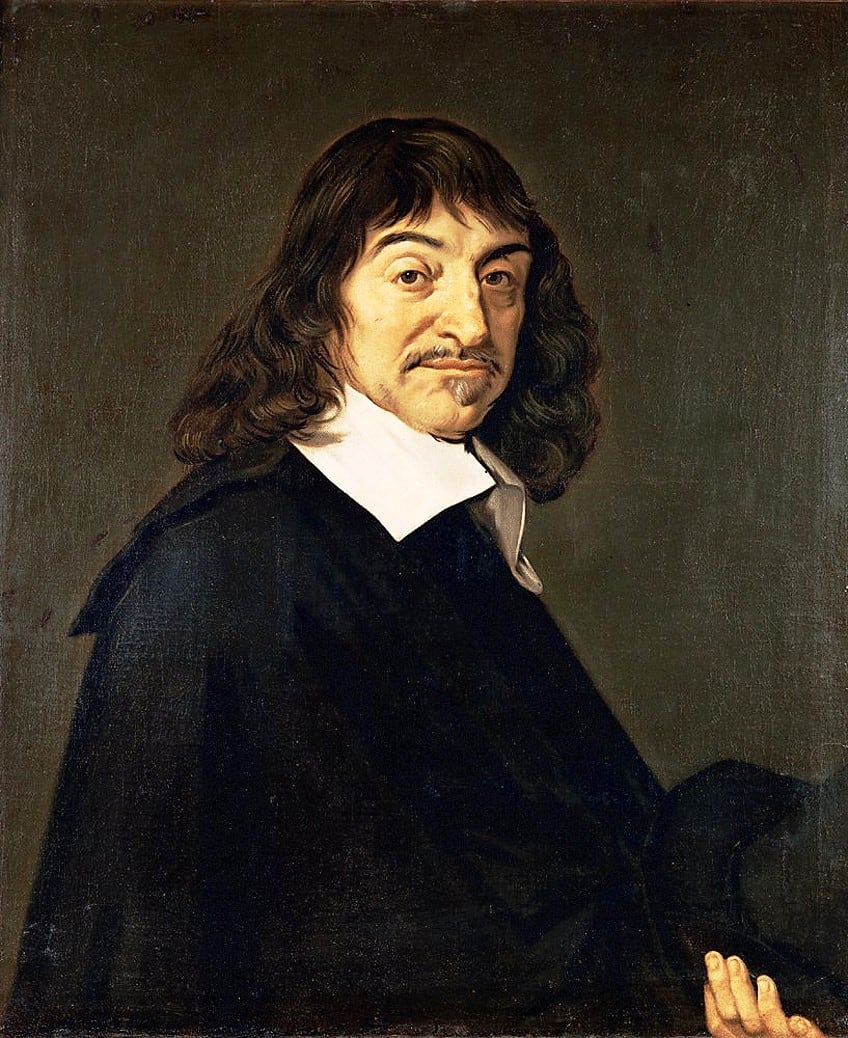
The intellect, body, and God’s kingdom would all be included inside these three realms. The idea that the mind and body are distinct is intriguing. When a debate of the senses is held, this idea is carried a step further.
Blaise Pascal (1623 – 1662)
| Nationality | French |
| Date of Birth | 19 June 1623 |
| Date of Death | 19 August 1662 |
| Place of Birth | Clermont-Ferrand, France |
Was Blaise Pascal a philosopher or a mathematician, physicist, geometer, controversialist, and Christian apologist? Given the ramifications of the phrase in his day, he would have most likely responded no. “God of Abraham, not of the intellectuals and savants,” he says in his conversion memorial. Pascal is still read today because he interacted creatively with the philosophical thinking of his day, and he still has much to contribute to contemporary thought.
Pascal’s intended audience was the educated nobility and bourgeoisie, which he traveled among.
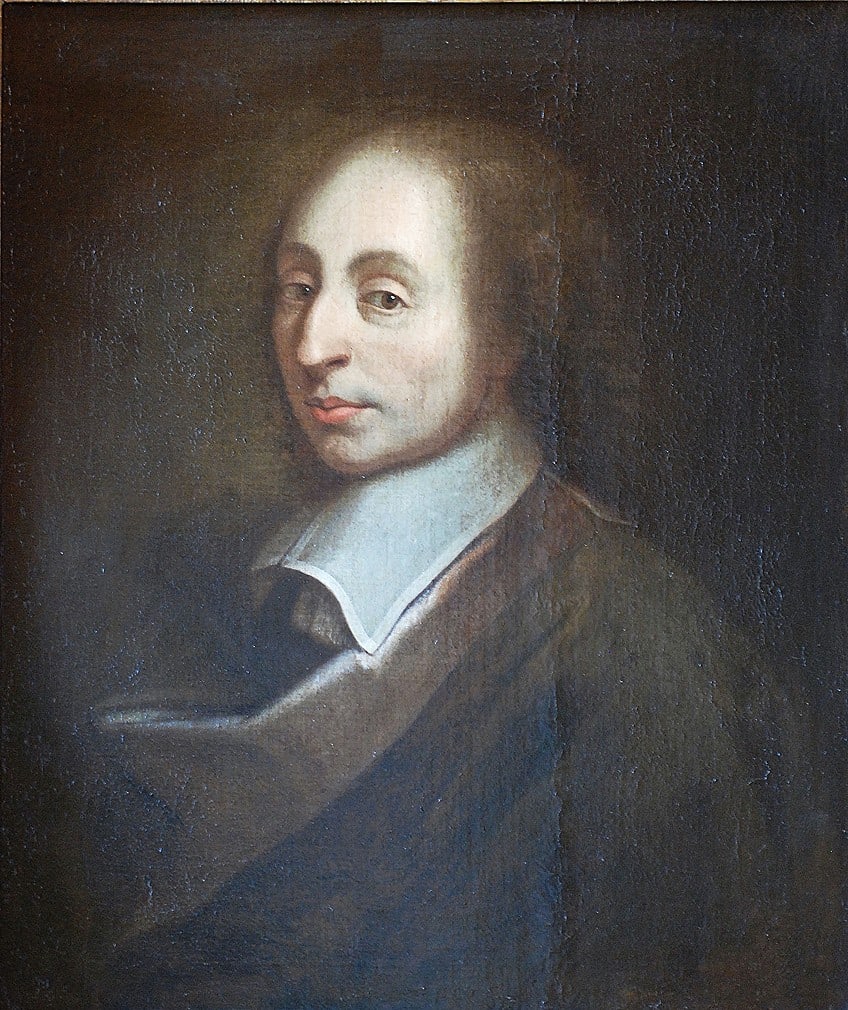
Under the influence of current ideas, these people tended to drift away from orthodox Christianity and toward deism or rationalism. Pascal wanted to show that Christianity is true in the framework of 17th-century philosophy. In the seventeenth century, humanity’s perception of itself shifted dramatically. Two instruments influenced Pascal’s knowledge of this: the microscope and the telescope.
The endlessly little world was shown by the microscope, and the universe’s vastness was disclosed by the telescope.
John Locke (1632 – 1704)
| Nationality | English |
| Date of Birth | 29 August 1632 |
| Date of Death | 28 October 1704 |
| Place of Birth | Wrington, United Kingdom |
John Locke, an English philosopher, and social critic, established much of the foundation for the Enlightenment and was a key figure in the development of liberalism. He was a significant proponent of the Scientific Revolution’s empirical techniques, despite his medical training.
He proposed a notion of the self as a blank page, with understanding and character developing only from collected experience, in his works.
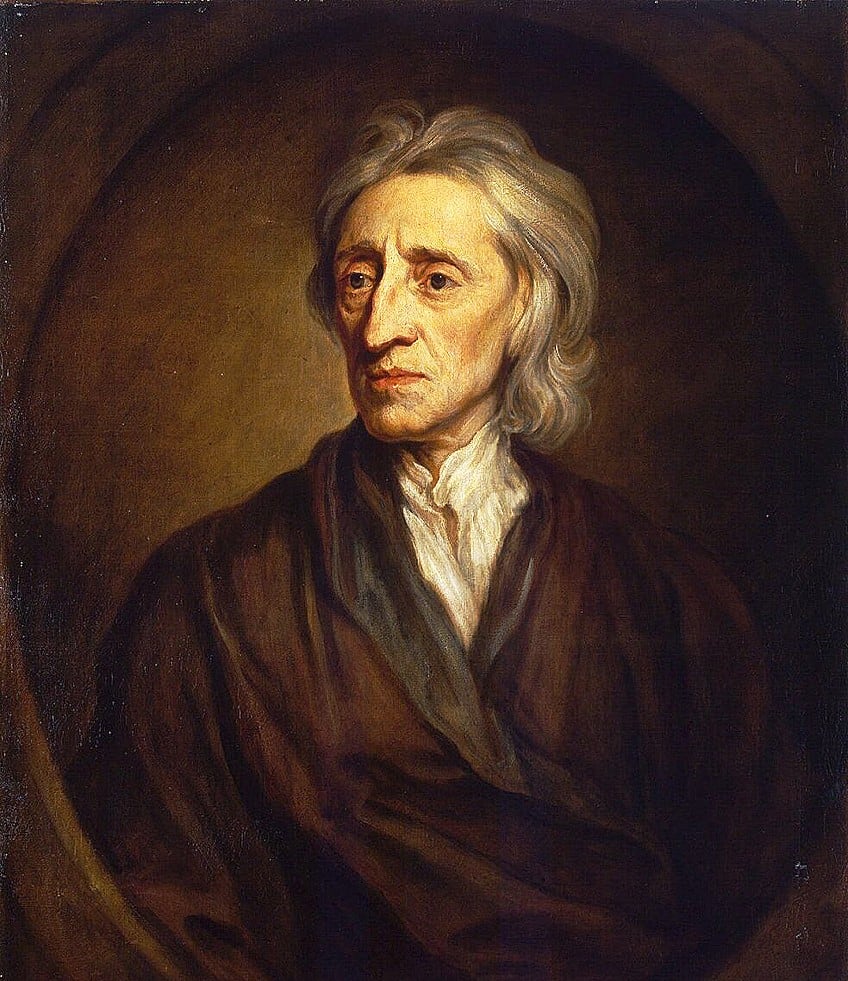
His political philosophy of governance by agreement of the ruled as a way of safeguarding the three inherent rights of “life, freedom, and property” had a significant impact on the founding papers of the United States.
His works on religious tolerance established the separation of religion and government as an early paradigm.
Locke, who rejected monarchs’ divine prerogative, claimed that communities build governments via mutual consent. As a result, if a monarch loses the approval of the governed, a community has the power to depose him.
Gottfried Leibniz (1646 – 1716)
| Nationality | German |
| Date of Birth | 1 July 1646 |
| Date of Death | 14 November 1716 |
| Place of Birth | Leipzig, Germany |
Gottfried Leibniz was a German philosopher and mathematician. His mathematical accomplishments include developing calculus concurrently with, but independently of, Isaac Newton. In addition, he invented a variety of mechanical calculators. Leibniz, as a philosopher, thought that the universe we live in is the finest of all conceivable universes.
His upbeat outlook on life influenced his other writings, and he was a forerunner in what became known as analytic philosophy.
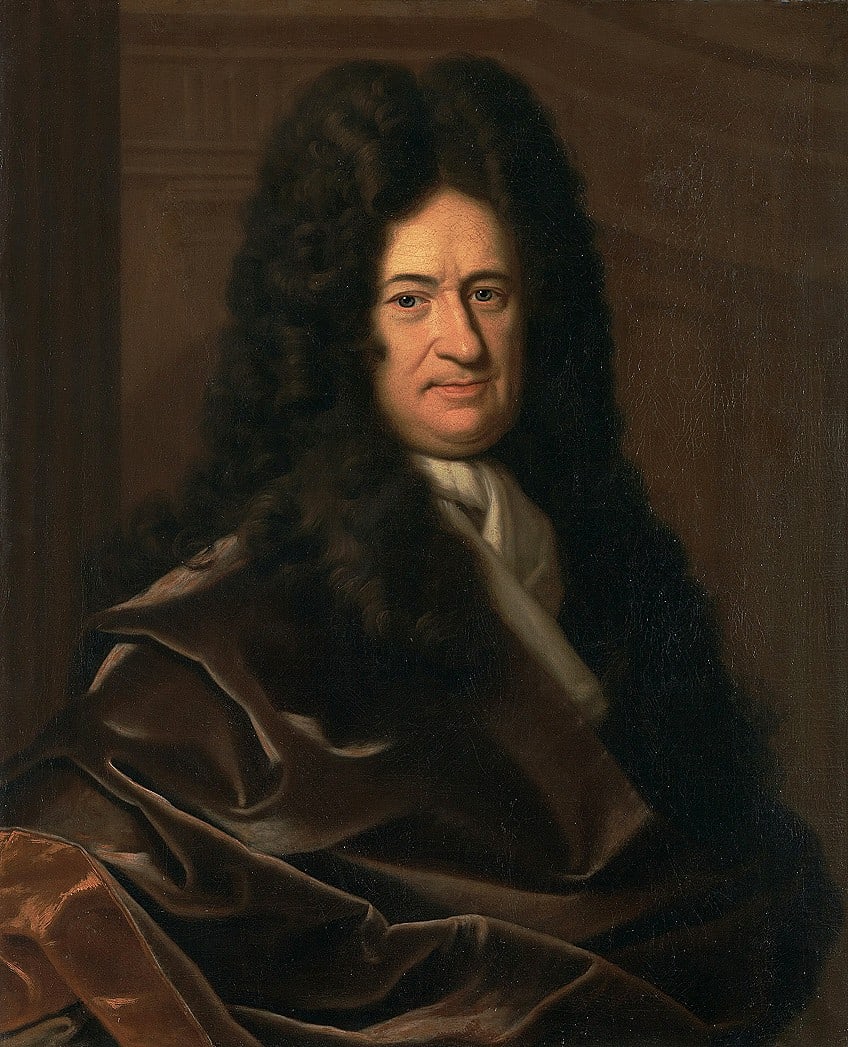
Leibniz was a prolific author, and his whole writings have yet to be fully gathered. Nonetheless, Leibniz’s later years were overshadowed by a bitter feud with Isaac Newton about who invented calculus first, and he was frequently mocked in court for his old-fashioned garb.
Voltaire (1694 – 1778)
| Nationality | French |
| Date of Birth | 21 November 1694 |
| Date of Death | 30 May 1778 |
| Place of Birth | Paris, France |
Voltaire is one of those philosophers’ names that you might recognize. Voltaire’s criticisms were so relentless, and he was so adept at using both wit and reason, that we can’t help but love him today, and he is revered as a renowned thinker from the era known as the Age of Enlightenment.
It’s tempting to dismiss the Enlightenment and its accomplishments as merely another inexorable step on the road to Modernity.
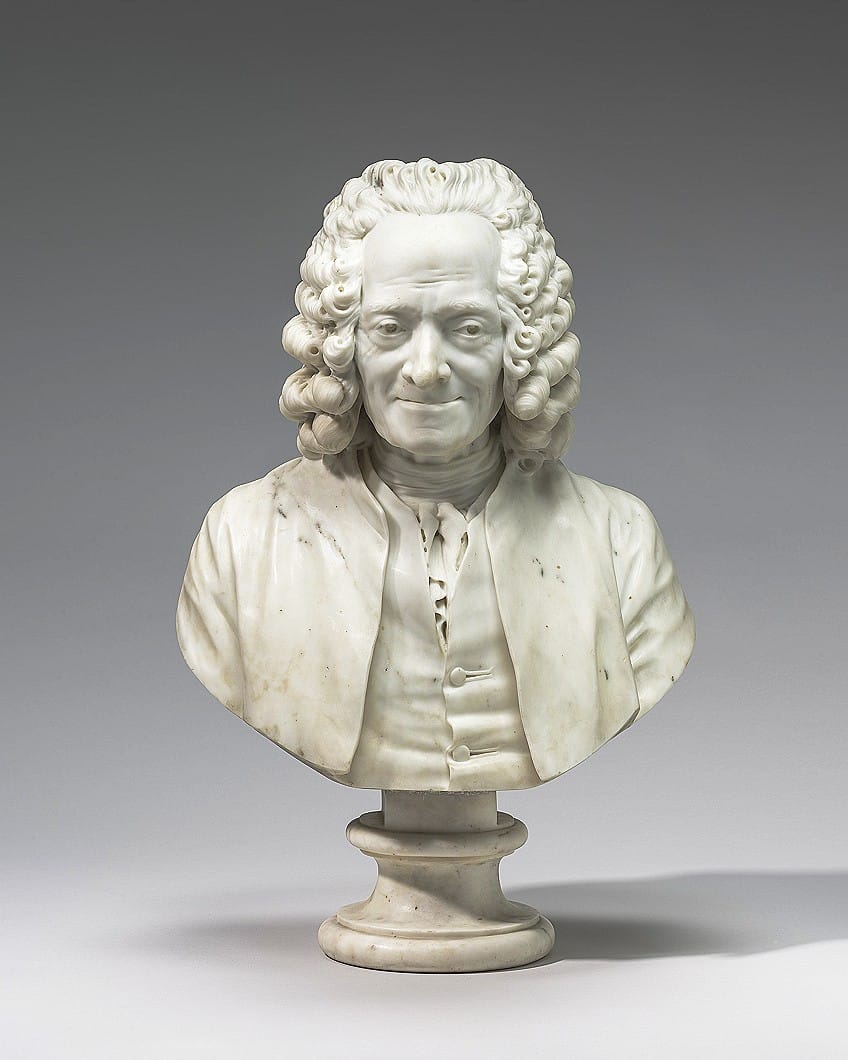
However, the liberties that today constitute the foundation of Western culture – the freedom to believe, talk, and act as we like – were once merely the fantasy of a few scribbling idealists like Voltaire. It takes bravery to irritate the strong and dispute widely held beliefs to promote more humanitarian ones.
We may be grateful that his values have been utilized to shape our current democratic society.
However, we must stay realistic in our assessment of how history is destined to repeat itself. “What makes this earth a pit of pain, and will always make it a valley of misery,” Voltaire said, “are men’s ravenous greediness and invincible pride.”
David Hume (1711 – 1776)
| Nationality | Scottish |
| Date of Birth | 7 May 1711 |
| Date of Death | 25 August 1776 |
| Place of Birth | Edinburgh, Scotland |
David Hume is regarded as one of history’s most important philosophers. He was not, however, a well-liked thinker during his lifetime, and it was only after his passing that the profundity of his work became widely recognized. Hume’s research continues to impact scholars and psychologists to this day.
During his lifetime, David Hume produced a number of significant and innovative treatises.
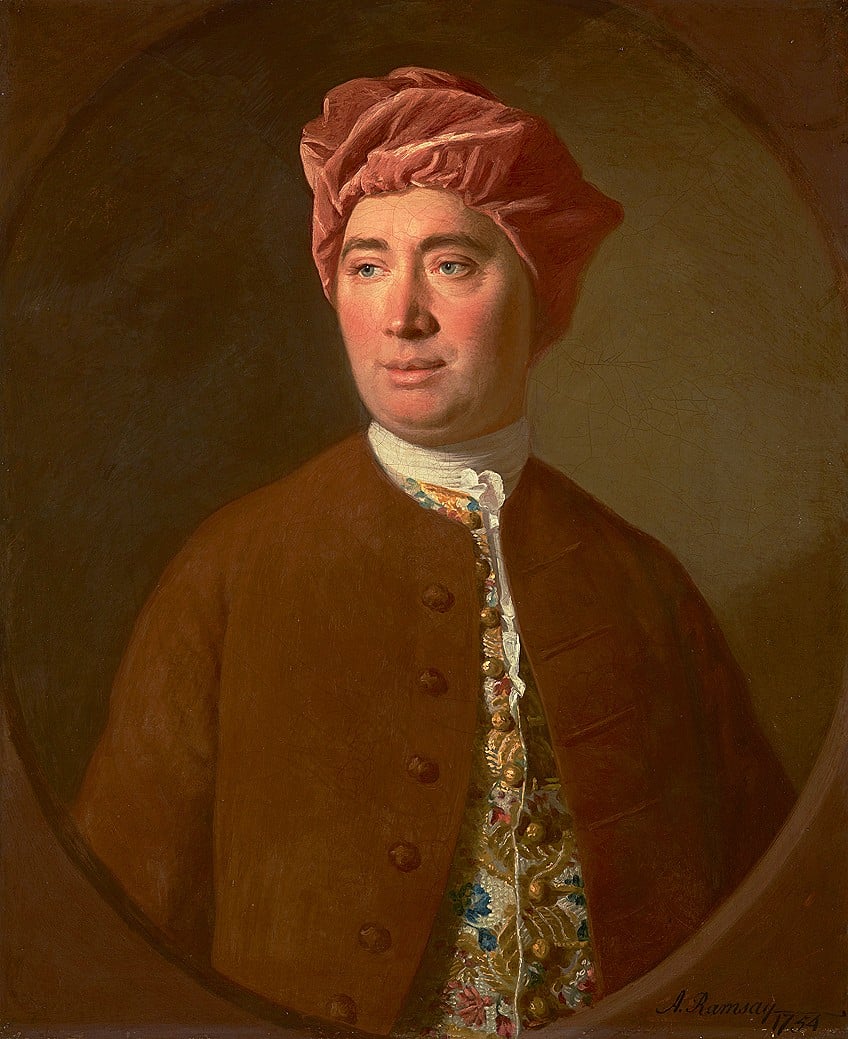
This is why he is regarded as one of the best Scottish Enlightenment thinkers. While he is widely regarded as a skeptic, bordering on cynicism, his works demonstrate that he had some understanding of human behavior and the essence of values.
Jean-Jacques Rousseau (1712 – 1778)
| Nationality | Genevan |
| Date of Birth | 28 June 1712 |
| Date of Death | 2 July 1778 |
| Place of Birth | Geneva, Republic of Geneva |
Jean-Jacques Rousseau is a philosopher who is both popular and controversial. Rousseau’s ideas had a significant impact on the overthrow of the tyrannical monarchy that controlled France in the 18th century. Whether or not his thought led to the terrible Campaign of Terror that succeeded the French Revolution remains a question.
Rousseau was not a big fan of philosophers.
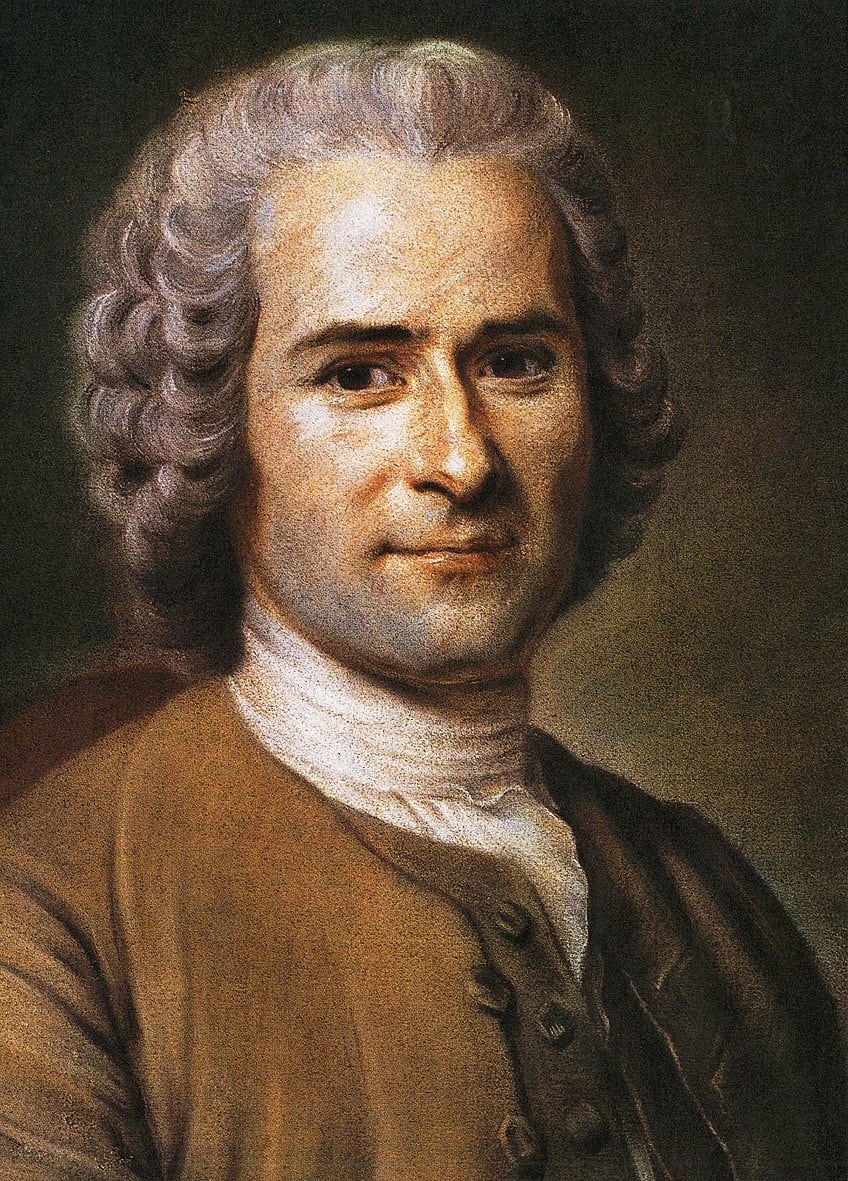
He viewed them negatively, believing that they were primarily responsible for societal deterioration and despotism. In certain ways, they were seen as the ruling class’s errand runners. Rousseau was a firm believer in individual liberty.
He believed that it was human nature to do good for others. Corruption, on the other hand, is a result of society’s bad effects.
Immanuel Kant (1724 – 1804)
| Nationality | German |
| Date of Birth | 22 April 1724 |
| Date of Death | 12 February 1804 |
| Place of Birth | Königsberg |
Immanuel Kant’s philosophy may be classified into two primary divisions. His metaphysics and speculative philosophy are founded on a reasonable comprehension of the idea of nature. His practical philosophy, which includes morals and political philosophy, is founded on the notion of liberty. Both of these streams of philosophy have had a huge impact on later philosophical history.
From Kant’s time onward, his idea of moral freedom and ethical beliefs has been essential to debates on morality. His moral concept is one of liberation.
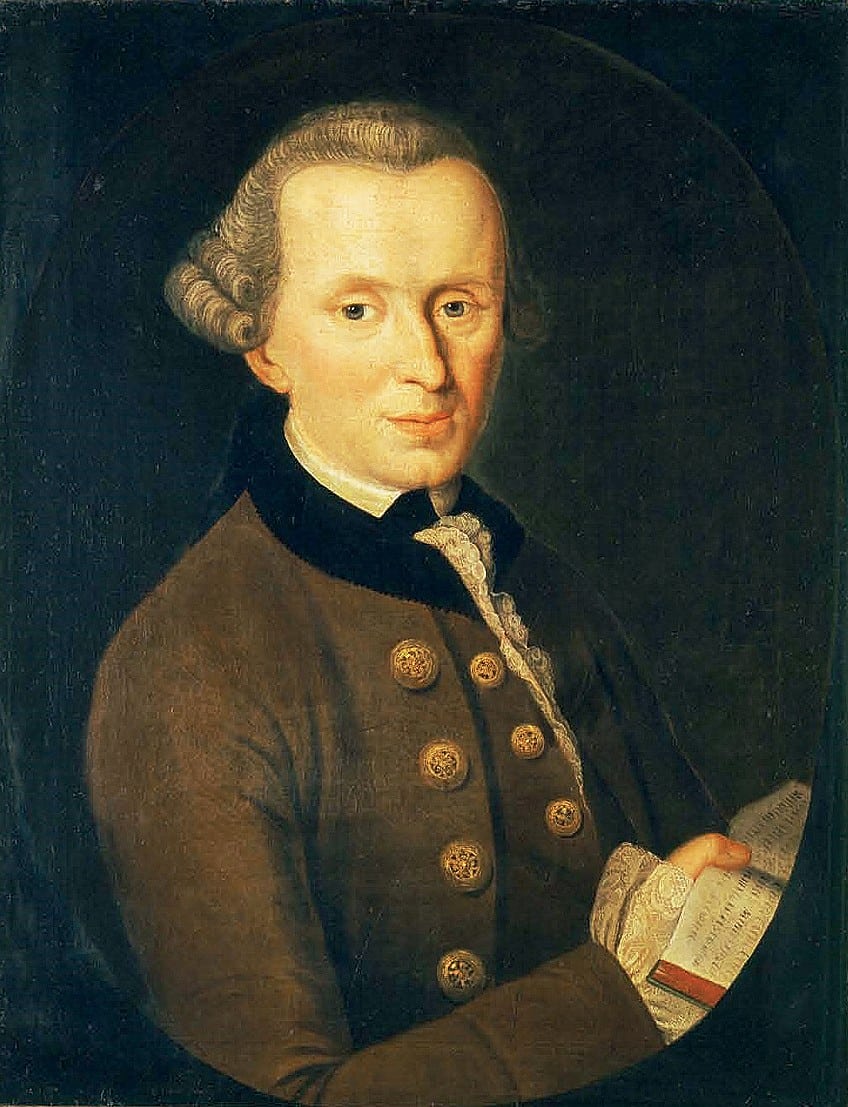
Moral assessment and moral duty would be inconceivable without human freedom, Kant believed. Kant argues that if a person is unable to behave in any other way, his or her actions have no moral value. He also argues that every human being is born with a morality that alerts them to the fact that the moral law governs them. This is what Kant refers to as a “truth of reason,” and it is the foundation for his belief in human liberty.
However, Kant argues that the complete natural world is subjected to a rigorous Newtonian causation principle, suggesting that all of our physical activities are produced by antecedent events rather than by our free will.
So, how can liberty and morality coexist? Kant’s solution to the difficulty is that, while humans are subject to causation in the phenomenal domain, we are autonomous in the noumenal sphere.
Mary Wollstonecraft (1759 – 1797)
| Nationality | English |
| Date of Birth | 27 April 1759 |
| Date of Death | 10 September 1797 |
| Place of Birth | Spitalfields, London |
Mary’s own life was full of ups and downs and ended in disaster. She met an American explorer in Paris in 1792 while celebrating the French Revolution, and their liberal and unmarried escapades together resulted in her first daughter. She married William Godwin, the prominent British anarchist, a few years later.
They married right away, with her feminist view of marriage as the basis of all female subjugation and his anarchic perspective of marriage as exactly this type of shackling social norm that needed to be eradicated.
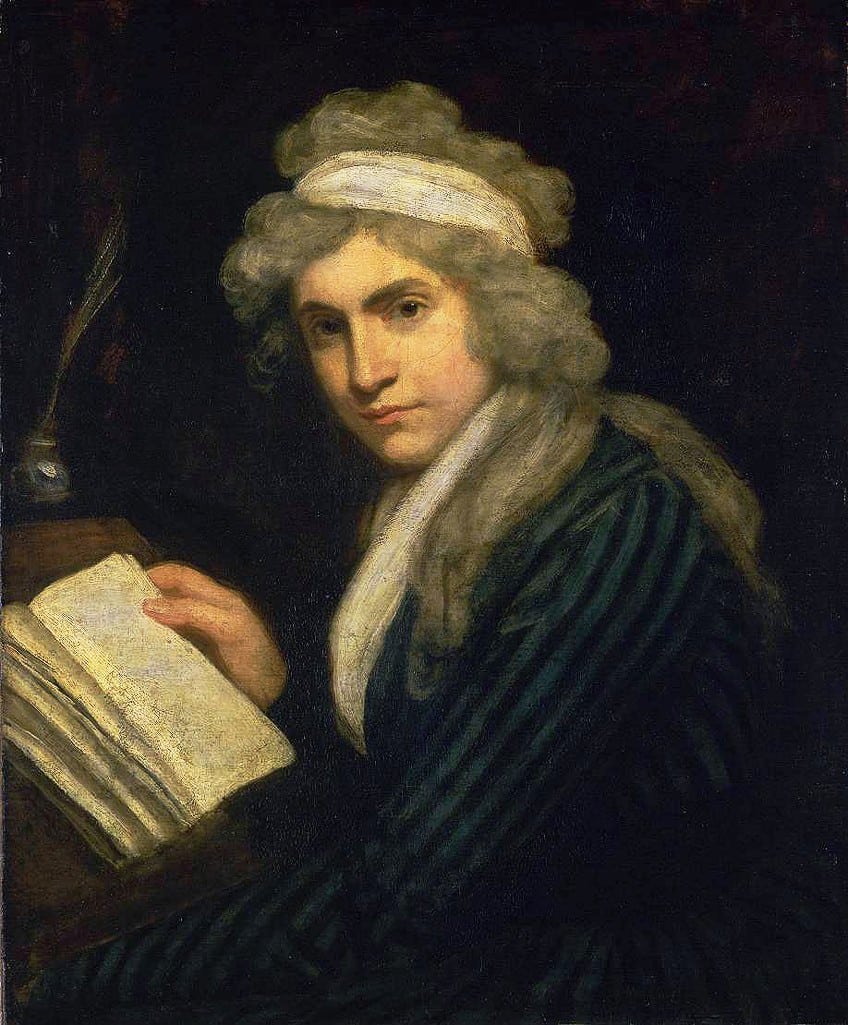
Mary died of septicemia just 10 days after giving birth to her daughter. Mary Wollstonecraft was a revolutionary in the respect that she wanted to close the gap between humanity’s current state and ultimate perfection. She was a true child of the French Revolution, anticipating a new era of reason and charity. Mary took up the mission of assisting women in achieving a better life for themselves, their children, and their spouses.
Of course, it took more than 100 years for civilization to begin to implement her ideas.
Auguste Comte (1798 – 1857)
| Nationality | French |
| Date of Birth | 19 January 1798 |
| Date of Death | 5 September 1857 |
| Place of Birth | Montpellier, France |
Auguste Comte was a well-known French philosopher who is credited with founding the field of sociology. He is also recognized as the first philosopher of science in some situations. In an attempt to alleviate the societal melancholy of the French Revolution, he even devised the renowned Positive Philosophy.
Auguste Comte established a social ideology founded on scientific grounds. He began giving lectures to a group of prominent French thinkers in 1826.
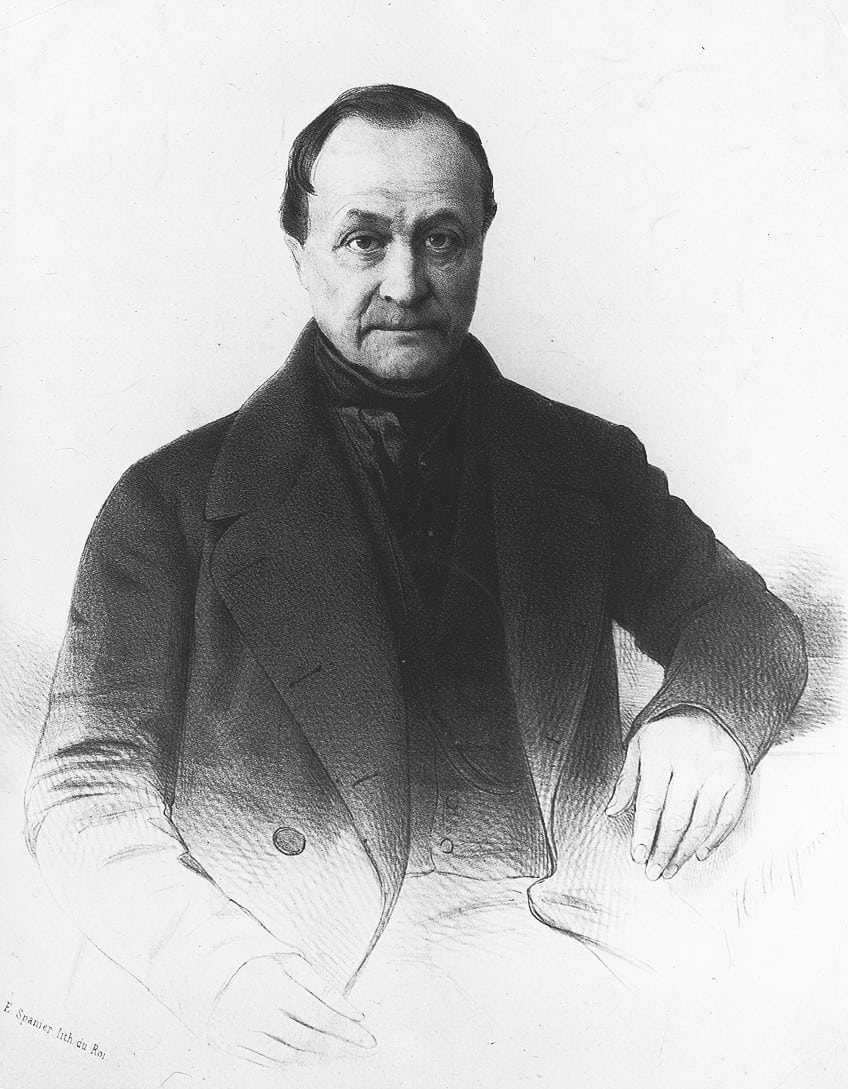
However, he had a nervous collapse after roughly a third of his lecture series. Despite spending a lengthy period in the hospital, he was nevertheless able to complete one of his main works. In this essay, he maintained that society, like the material realm, has its own set of rules.
Ayn Rand (1905 – 1982)
| Nationality | Russian-American |
| Date of Birth | 2 February 1905 |
| Date of Death | 6 March 1982 |
| Place of Birth | Saint Petersburg, Russia |
Ayn Rand was one of the most influential thinkers of the 20th century. She went to North America after finishing university in Russia in 1905. She became well-known as a supporter of Objectivist philosophy after distinguishing herself as a novelist.
With its focus on naturalistic, practical reason, and self-realization, Rand’s philosophy is Aristotelian.
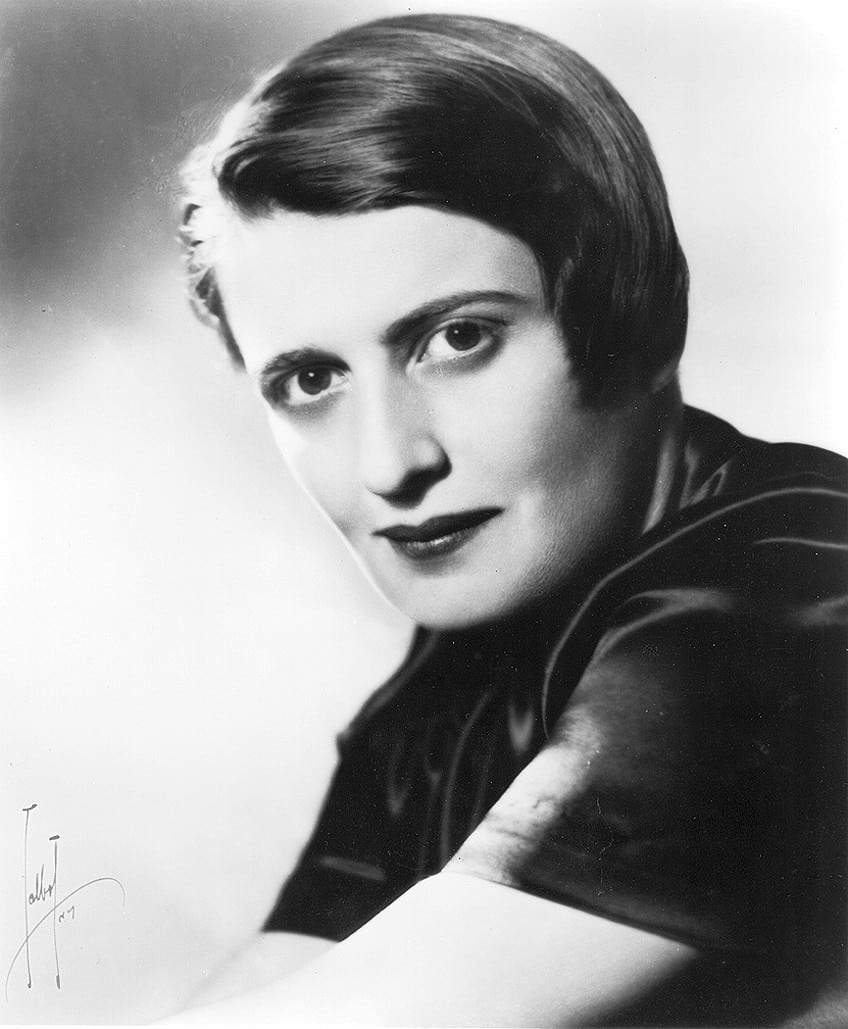
Her political views are traditional liberal, with ties to John Locke’s focus on individualism, democratic protection of personal rights to life, freedom, and ownership, and personal liberty. She penned mainstream and scientific philosophy, which she presented in both fictional and non-fictional formats. These philosophical novels are based on subjects she explored in nonfiction articles and books in the 1960s and 1970s, including epistemology, virtue theory, economic and political rights, and aesthetics.
Her opinions were divisive during her lifetime and remain so today.
Simone de Beauvoir (1908 – 1986)
| Nationality | French |
| Date of Birth | 9 January 1908 |
| Date of Death | 14 April 1986 |
| Place of Birth | 6th arrondissement of Paris, France |
The Second Sex by Simone de Beauvoir is regarded as a seminal text in the history of feminism. Beauvoir had previously denied being a feminist, but once the powerful Second Sex became pivotal in the field of feminism, she finally accepted it.
The book had a huge impact, paving the way for the next wave of feminism in Canada, North America, Australia, and other parts of the world.
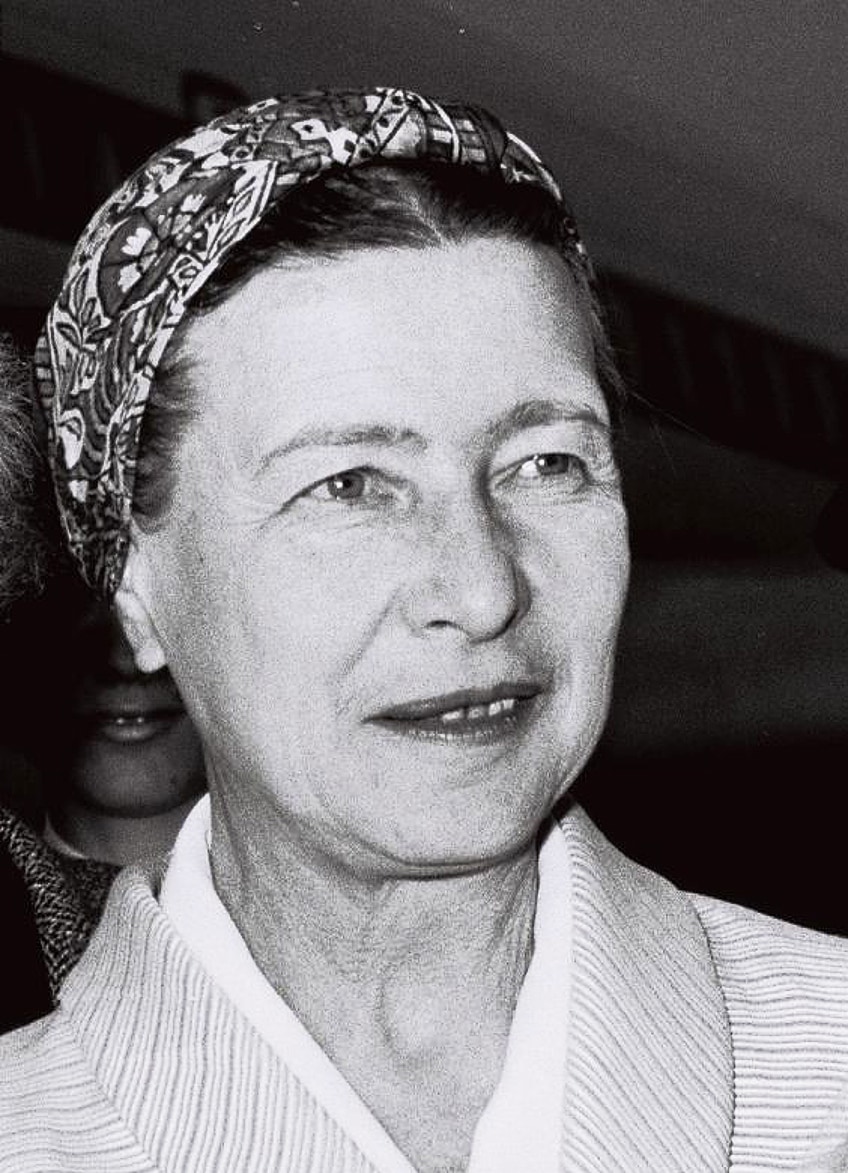
Even though Beauvoir has been cited as saying, “There is a particular unrealistic expectation that I find a bit foolish since it would contain, paralyze me entirely in a type of feminist block of concrete”. She had a considerable effect on both existentialism in feminists and feminist philosophy, despite not considering herself a philosopher and not being regarded as one at the time of her death.
Michael Foucault (1926 – 1984)
| Nationality | French |
| Date of Birth | 15 October 1926 |
| Date of Death | 25 June 1984 |
| Place of Birth | Poitiers, France |
Michel Foucault was a major character in Western philosophy in the 20th century, and top of the most modern philosophers on our list. He was also a well-known philologist, literary critic, social theorist, and historian of ideas. He was a fervent believer in the historical importance of philosophy, and he scorned the postmodernist and poststructuralist labels affixed to him by American academics. Philosophy’s duty, according to Foucault, is to authentically represent human relations to reality and to indicate how we should behave in society.
His ideas might be summarized as a comprehensive investigation of transgression beyond societal boundaries, which is inextricably linked to knowledge and power.
Foucault saw his work as an analytical history of the social interactions linked with capitalism, and he preferred to study capitalism in its historical context. Michel’s primary philosophical writings are concerned with the complicated relationships that exist between two distinct elements, namely power and knowledge, and their function in the formation of social discourse.
Michel was academically bright, beginning his scholastic years at four years of age when he was enrolled in one of France’s most difficult sixth-form institutions. He indicated that he was not always brilliant, but that he began completing his schoolwork to ingratiate himself with a gorgeous boy at his school, and that this is how he got smart.
That concludes our look at the most famous philosophers through the ages and their various philosophical beliefs. Socrates, Plato, and Aristotle were three of the finest thinkers of the ancient world. However, some modern philosophers have also been honored for their contributions.
Take a look at our greatest philosophers webstory here!
Frequently Asked Questions
What’s a Philosopher?
A philosopher’s views are occasionally expressed in ways that make millions of people’s lives simpler. Philosophers, also known as thinkers, seek out the underlying meaning of phenomena and then develop them in a system of thinking. Even though they are aware of society’s vulnerability, they frequently share their ideas with the globe. Philosophers transform their painful experiences into teachings and share them with others in order to rescue them from life’s vices. Although a degree does not necessarily make a person a philosopher, many people do obtain one. The beauty, on the other hand, is that no two thinkers are alike.
What Does a Philosopher Do?
Some, like Socrates, are just like wine: the older, the finer. Others, like Nietzsche, are rockets, full of their own brightness and majesty. Some people are drowning in their grief, while others are hopeful despite their grief. Nonetheless, every one of them makes a connection with someone and expresses his own uniqueness. Philosophers add to life at all ages, demonstrating that every one of us has one concealed within us. Plato believed that wonderment is the philosopher’s mood and that philosophy starts with amazement.
Justin van Huyssteen is a freelance writer, novelist, and academic originally from Cape Town, South Africa. At present, he has a bachelor’s degree in English and literary theory and an honor’s degree in literary theory. He is currently working towards his master’s degree in literary theory with a focus on animal studies, critical theory, and semiotics within literature. As a novelist and freelancer, he often writes under the pen name L.C. Lupus.
Justin’s preferred literary movements include modern and postmodern literature with literary fiction and genre fiction like sci-fi, post-apocalyptic, and horror being of particular interest. His academia extends to his interest in prose and narratology. He enjoys analyzing a variety of mediums through a literary lens, such as graphic novels, film, and video games.
Justin is working for artincontext.org as an author and content writer since 2022. He is responsible for all blog posts about architecture, literature and poetry.
Learn more about Justin van Huyssteen and the Art in Context Team.
Cite this Article
Justin, van Huyssteen, “Famous Philosophers – History’s Greatest Thinkers.” Art in Context. June 29, 2022. URL: https://artincontext.org/famous-philosophers/
van Huyssteen, J. (2022, 29 June). Famous Philosophers – History’s Greatest Thinkers. Art in Context. https://artincontext.org/famous-philosophers/
van Huyssteen, Justin. “Famous Philosophers – History’s Greatest Thinkers.” Art in Context, June 29, 2022. https://artincontext.org/famous-philosophers/.


